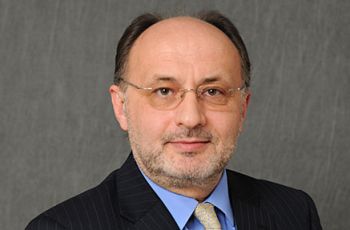Research News
Two studies published by Andrew Meltzer, MD, associate professor of emergency medicine at SMHS, focus on improving physicians’ abilities to perform rapid diagnostics for patients in the emergency department.
Researchers from the GW Institute for Neuroscience published a new study in Neuron, which provides the first evidence showing that individual nerve cells fail to make the right number of connections. The reason for this deficit is limited growth of key nerve cells in the cerebral cortex during…
Using the mobile app Babyscripts reduced in-person prenatal care visits while maintaining patient and provider satisfaction, according to research published in JMIR mHealth and uHealth by physician researchers from the GW School of Medicine and Health Sciences.
Ian Toma, MD, PhD, co-authored a concept paper proposing a plan for the use of bioinformatics and open data to boost analytical capabilities in countries with limited resources.
Victoria Shanmugam, MD, published study on hidradenitis suppurativa in the journal Clinical and Experimental Dermatology.
Mandi Pratt-Chapman, MA, associate center director for patient-centered initiatives and health equity at the GW Cancer Center, has been awarded a $4.125 million cooperative agreement to continue work with the Centers for Disease Control and Prevention to provide comprehensive technical…
A team at the GW Cancer Center found that the deubiquitinating enzyme USP15 is a potential biomarker for treatments of breast and pancreatic cancers.
A group of student and faculty researchers from the GW School of Medicine and Health Sciences published outcome of establishing Rheumatology Interest Group in the International Journal of Rheumatology.
Researchers from GW, FDA, and industry leaders published in PLOS Biology, describing a standardized communication method for researchers performing high-throughput sequencing called BioCompute.
Rohan Fernandes, PhD, received more than $1.6 million from the National Institutes of Health to investigate nanoimmunotherapies for cancer


